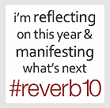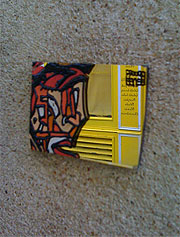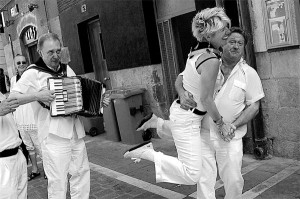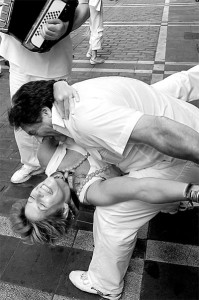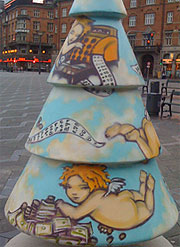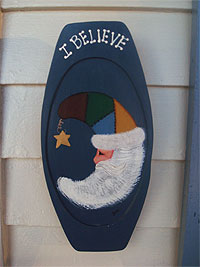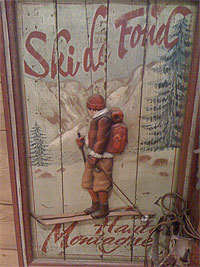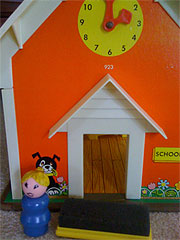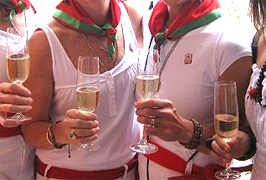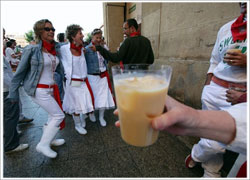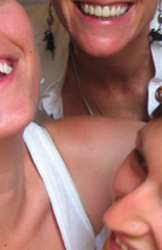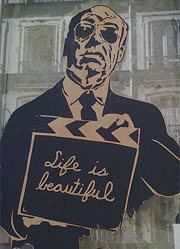A Year, Defined
Her coughing echoed off the walls of our hotel room. Just as I’d doze off, Buddy-roo would cough again, violently, waking herself up, and keeping De-facto and me from any semblance of real sleep. Only Short-pants, who could sleep through a train wreck, got any shut-eye.
The cough started last weekend, on the tail end of a mild cold, a typical flight-path for this kind of winter malady. Here is every parent’s dilemma: hover over your child and rush her to the doctor every time she sneezes?
Or help her gut it out because, usually, a little TLC, tea and honey and homemade chicken soup will let it run its course. It’s never comfortable, but kids get sick – everyone gets sick – and you get through it. Of course, Short-pants once had a cough and flu-like thing that turned out to be a brain abscess and required surgery and six weeks in intensive care. This could have turned us into full-fledged helicopter parents. We’ve tried, very deliberately, not to overreact to subsequent illnesses based on that experience, which was a statistical anomaly. I’m kinda proud of that.

Why is it that a child’s cough or cold always gets worse the day just before a holiday weekend or in the middle of a vacation? It’s like they wait to get really sick until your trusted pediatrician is out of reach or until you’re in a strange place where you can’t handily call a doctor. Then you wished you’d addressed it when they were just a little sick, except then you’d feel a bit silly, calling your doctor because of a runny nose.
After one particularly severe coughing fit, I switched places with Short-pants (who barely woke up and moved to the other bed like a zombie) in order to be next to Buddy-roo. I wanted to check her heart-rate, to feel if she had a fever, to try to slow her breathing by slowing mine beside her, or at least try to reassure her with a mother’s embrace.
“Mama,” she said, in that sweet middle-of-the night voice, “the coughing is keeping me from continuing the beautiful dream I was having.”
“I’m sorry peanut,” I soothed her, “tell me about your dream.”
“I was standing in the courtyard at school and there was a big white cloud stretched across the sky. The cloud got closer and closer and I saw it was Grammy standing on the cloud in a really beautiful dress with gold wings…”
She erupted into another fit of coughing.
“…and then I stepped onto the cloud, it was soft and warm, and then I had wings and a halo, too. Just like her.”
I’m glad this felt like a beautiful dream to Buddy-roo, but to me it had the makings of a nightmare. Was this a message from my mother or just a coincidence? I vowed to myself that we’d see a doctor, and soon.
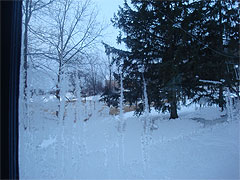
During the last week of my mother’s life, we talked about communicating from the other side. “If you can,” I pleaded, “could you tell Short-pants to pick-up her room?” It’s true I wouldn’t mind such a nudge from the afterlife, but the real reason I said it was that I knew it would make my mother laugh – the full circle of it all – and she did. Laugh, that is.
After some back scratching and tandem breathing, Buddy-roo’s coughing subsided and she fell into an even sleep. But now I was wide awake, left to further consider the meaning of her possibly prophetic dream, after which I turned to something I’d been pondering all day: my defining moment(s) of the last year. This is one Reverb10 prompt that I’d considered skipping; I think I’ve written enough about it already. Click on this blog’s dying or grieving tags and you’ll see I’ve documented, explored and exhausted the subject. Even my most loyal readers must be bored with it by now.
But there in the darkened hotel room, pitch black but for one thin line of pre-dawn light where the drawn curtains didn’t quite meet, the rest of my family slept and I ran through it all again, the whole constellation of moments that defined 2010 for me, plotted around the event of my mother’s death.
I remember at the calling hours at the funeral home, when, for a moment I actually stood outside myself, like an observer, watching the scene unfold. I saw my brother, my sister and myself greeting the friends and colleagues of my mother – of both my parents, in fact – who came to pay their respects. There’s a remarkable thing that happens at a time like this, a mutual healing occurs when the people who’ve come to console you discover their own grief and you end up consoling them. I think this is why we have calling hours and funerals and memorial services. Grief has its private moments, but its public expression has a place in the healing process, too.
I saw that somehow, despite our own exhaustion and grief, we’d pulled ourselves together and done what had to be done to move things along, to make all the arrangements, to show up and dig deep and find the words to appreciate each person who’d come to console us. I saw the three of us, doing this just the way my parents would have done it, just the way they would have wanted us to do it. And I knew that if my mother were watching, she’d have been proud.
The defining moment, perhaps, is what happened next, when I realized that I didn’t need to make her proud anymore, and I hadn’t needed to for a long time. I understood, in a deeper way, that it’s about making myself proud – not her, not my father, but me. Or even thinking ahead – maybe it’s a little bit about making my children proud, the way my siblings and I were so  very proud of our mother.
very proud of our mother.
What defined me this year was not that I lost my mother, but what’s happened since she died. Not to go overboard here; it’s too easy to canonize her now that she’s gone and it should be said that we had our fair share of frustrating, eye-rolling moments, typical for most mother-daughter relationships. But in the end, we were good friends and we relied upon each other. I’ve had to learn how to be afloat without her gentle ballast in the background, and that is what will define this year for me.
At breakfast the next morning I asked the hotel proprietor to suggest a local doctor. She could, it turns out, and she even made a few calls on our behalf, returning with several options, the best of which was a general practitioner with open office hours until 10:30 am, in the village halfway between our hotel and the ski mountain.
“Vous avez évité une catastrophe,” the doctor said, pressing her stethoscope against Buddy-roo’s chest and looking at her throat and ears with the proper lighting. Buddy-roo coughed, violently, and smiled. “What’s a catastrophe?” she asked me, in English. “A big mess, and we’ve avoided it,” I answered. “Is that good?” she asked. I nodded, feeling her forehead.
At the pharmacy I handed over the prescription, waiting and watching as the pharmacist meticulously fulfilled the doctor’s requests, one item at a time. He placed each box of medicine in front of me with an explanation of how much, how often, at what time of the day to administer it. When he put the package of suppositories – for a cough – on the countertop, he must have noticed my expression. “It’s the French way,” he said, in English, smirking at me. I’m pretty sure he never had to administer a suppository to a 7-year old child. If he did, I bet he’d choose another form, despite its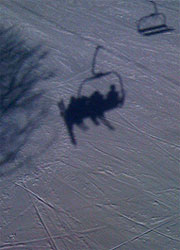 slower efficacy.
slower efficacy.
Our last day of skiing could continue as planned. I was prepared to sit it out in the lodge with her, but Buddy-roo wanted to have another lesson and another few hours on the slopes. At least now she was fortified with some medicine and tonight she’d sleep without interruption. In a week’s time she’ll be fine; already she seemed on the mend. I felt the clouds lifting, rising high and away, and I knew that if my mother were watching, she’d have been proud.
Not that it matters (ahem).
I’m participating in Reverb10, and this post is in response to a prompt from author Kathryn Fitzmaurice: Prompt: Defining moment. Describe a defining moment or series of events that has affected your life this year.
